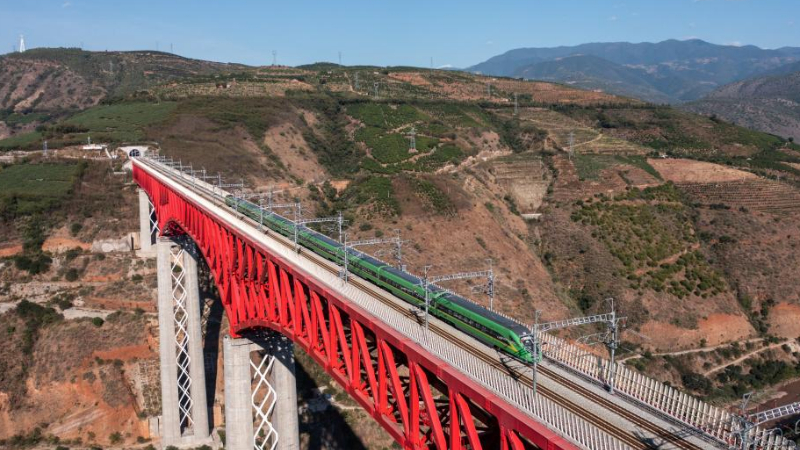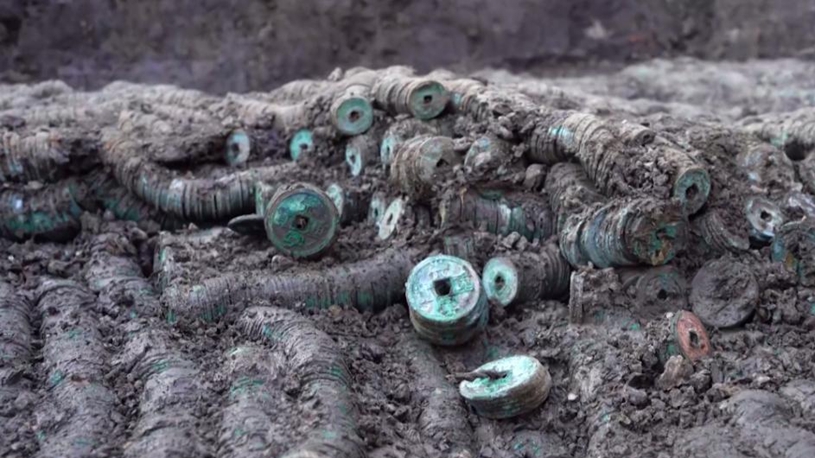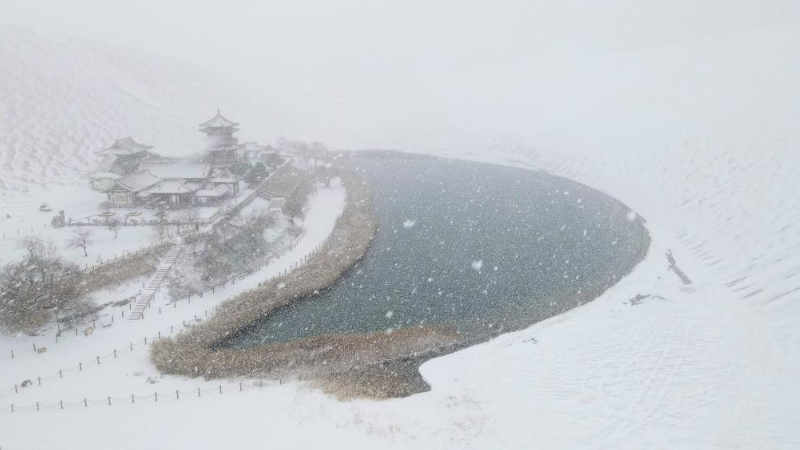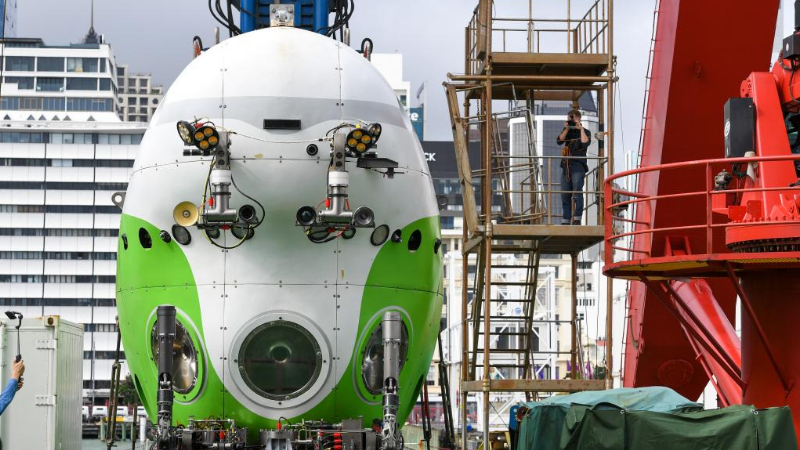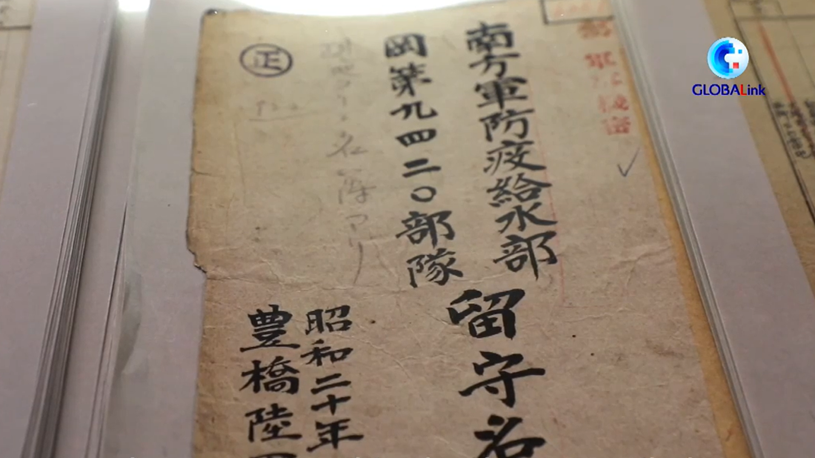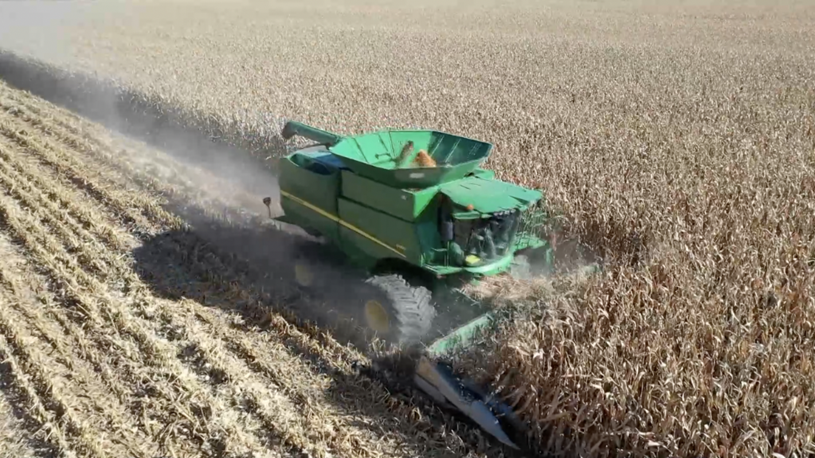
Worker assembles a heater working on pistachio shells and firewood at a workshop in Hama, central Syria, Dec. 13, 2022. (Photo by Ammar Safarjalani/Xinhua)
by Hummam Sheikh Ali
HAMA, Syria, Dec. 14 (Xinhua) -- At his workshop in Syria's central province of Hama, 42-year-old heaters maker Abdullah Ali Twait recalls how his business had thrived after the outbreak of the country's civil war 11 years ago.
To cope with the protracted fuel shortage in the war-torn country, Twait has gradually switched out the diesel fuel that powered the heaters for less expensive and more widely accessible options like firewood or pistachio shells.
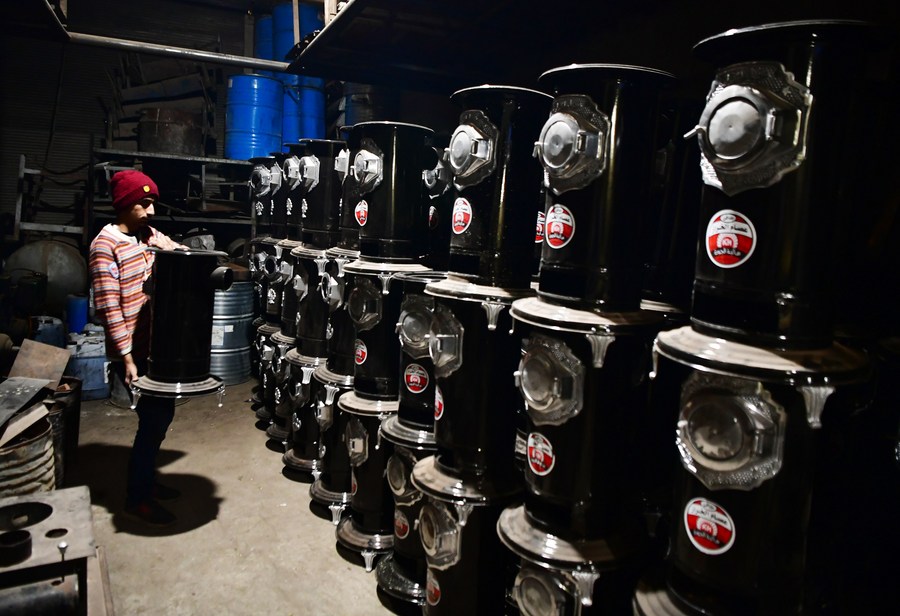
Worker assembles a heater working on pistachio shells and firewood at a workshop in Hama, central Syria, Dec. 13, 2022. (Photo by Ammar Safarjalani/Xinhua)
Wearing a brown jellabiya, Twait, who was overseeing a small group of workers assembling the heaters, said the replacement of the standard diesel heaters was a result of the country's fuel shortage, in which it was difficult to obtain diesel and heating oil during the winter.
"People discovered that biofuel is half as expensive as diesel when they began to calculate its costs. People began using this natural fuel as a result, and our business gradually started to become better, " he said.
His latest model is an all-in-one heater that can burn peels, shells of pistachio and almond, as well as firewood.
Twait has promoted his heaters on social media, as such heaters have so far mostly remained popular in the rural areas of the pistachio-rich provinces of Hama and Homs.
The cheaper alternative to diesel heaters are popular with clients, said Twait, adding he believes that people will continue to use such models even if the stock of fuel returned to its pre-war level.
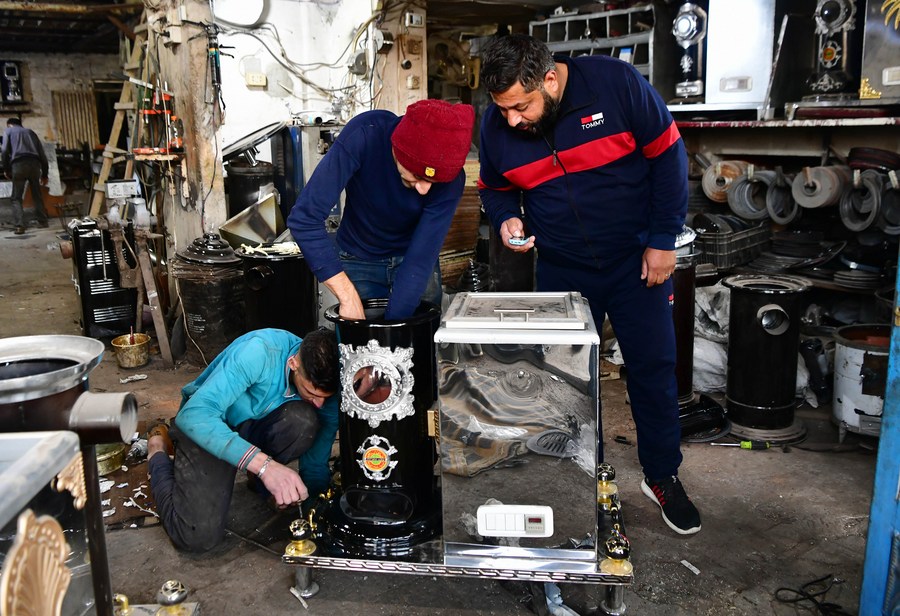
Workers assemble a heater working on pistachio shells and firewood at a workshop in Hama, central Syria, Dec. 13, 2022. (Photo by Ammar Safarjalani/Xinhua)
A couple of blocks away, Sulaiman al-Khaled, a 34-year-old father of five children, said he has been using the pistachio heater since the beginning of the Syrian civil war.
The heater has evolved into a heater with a control board and a better design from a handmade stove at the beginning, he recalled.
Sitting next to big sacks of pistachio near the heater, he said, "we have replaced the old diesel-powered heater with this new heater that operates on pistachio shells, because its price is cheaper and it doesn't emit smoke or odor."
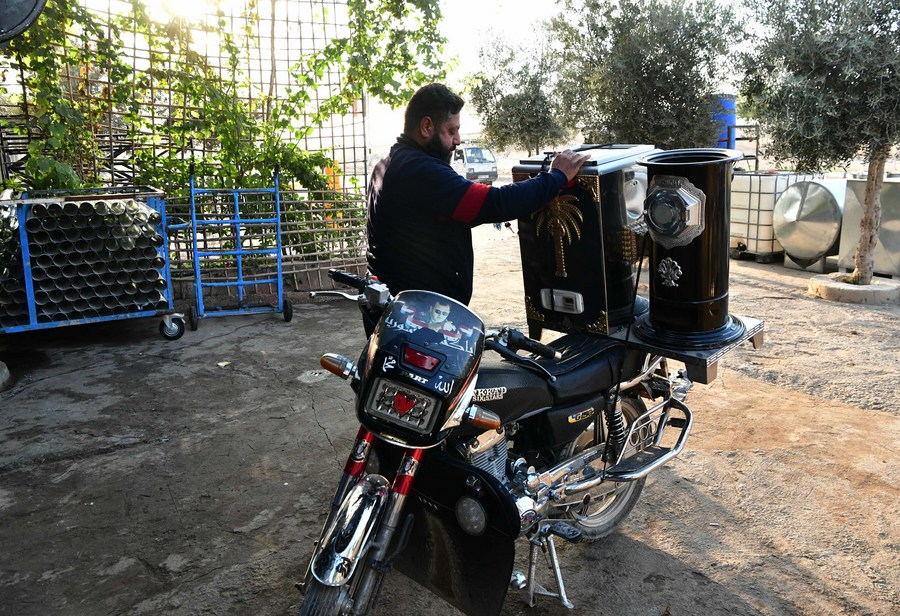
A man buys a heater working on pistachio shells and firewood at a workshop in Hama, central Syria, Dec. 13, 2022. (Photo by Ammar Safarjalani/Xinhua)
Due to a lack of diesel and other fuels, lengthy power outages, and spiking costs for cooking gas and car fuel on the black market, the fuel crisis in Syria has worsened in recent weeks.
The government has implemented such measures to save fuel as enacting a three-day weekend, which will last until the end of the year, and suspending all cross-city sports games to save transportation fuel.
The government also raised the price of diesel, which is widely used in heavy industry equipment, and issued a warning against buying fuel from the black market.
The Syrian government has blamed the fuel crisis on the U.S. sanctions, which have made it hard for fuel and oil tankers to reach the Syrian coast. ■


